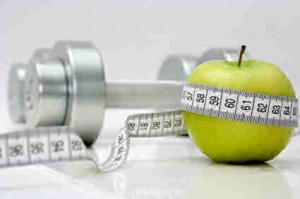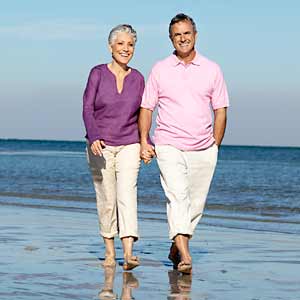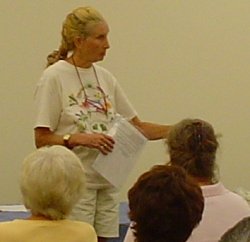Exercise, Calories and Your Health
We hear a lot about the importance of exercise so let’s take a look at some of the major health benefits of regular, gentle exercise and some ways that you can improve on this.

Regular, gentle exercise is very important to help maintain a healthy heart, lungs and circulation system. If you do not do regular exercise, then you may find this article useful and informative. It is certainly worth having a look at how you can gently increase your health and strength.
What is Metabolism ?
In the same way that cars need fuel for energy, our bodies use food to survive. Breathing, nutrients being digested, the heart pumping, waste products being excreted and so on, all use energy and these processes continue all day and night.

Metabolism is the amount of energy (calories) your body burns to maintain itself. Whether you are eating, drinking, sleeping, cleaning, working, doing sports or studying, your body is constantly using energy. The energy that our bodies need to do all this work is obtained from the calorie content of food.
Defined simply, metabolism is basically the chemical reactions that happen in living organisms to maintain life. The word ‘metabolism’ literally comes from the Gk. ‘metaballein’ – ‘to change’ and ‘ballein’ meaning ‘to throw’ – literally there are hundreds of chemical reactions in our bodies – such as the cells using oxygen, the release of waste products, the breakdown of carbs in the body and the assimilation of proteins, vitamins and minerals.
What is Basal Metabolic Rate (BMR) ?
The amount of energy that we each need during any given 24-hour period is called the Basal Metabolic Rate. Or more specifically, it is the amount of calories a person burns over a 24-hour period to maintain bodily functions only, which includes heartbeat, breathing, digestion and organ function.
The Basal Metabolic Rate does not take into account the energy that we need for exercise or work, so it just means the minimum amount of calories for our normal activities such as shopping, working, gardening or household chores.
Your B.S.M. will vary according to your weight, age and gender.
Click here for a link to an online B.M.R. calculator
https://www.calculator.net/bmr-calculator.html
Calories | How we measure energy in Food?
Each different type of food we eat has a different energy value which is measured by calories.

The amount of calories that we need depends is determined by our body weight and also how much work we do, so each one of us will need a slightly different amount of calories for our daily needs.
A balanced diet includes eating the amount of food that we need for the amount of energy that our bodies need. If we eat more food than we need on a regular basis, this can turn into unwanted fatty tissue.
Click here for a link to an online calorie calculator
https://www.calculator.net/calorie-calculator.html
Diet and Exercise
Consistently eating more calories than you use will increase the amount of body fat. Exercise helps to get the heart pumping faster and helps to push the blood supply to the extremities faster, for example to the hands and feet, toes and fingers. If you find your extremities get very cold, then take up doing gentle, regular exercise, you may find that this helps a lot.
Exercises
Maintaining a schedule of regular, light exercise can really make a difference to your circulation.
Here are some simple exercises:

- Brisk walking.
- Climbing up and down the stairs, starting off with once or twice per day and increase gradually.
- Doing household chores such as vacuuming.
- Mowing the lawn.
- Cleaning the car.
- Gardening provides excellent exercise also.
- Take the stairs if possible, instead of using lifts.
- Walk up and down escalators instead of standing still on them.
- Get off the bus earlier than usual and walk that extra distance.
- Taking a short walk during lunchtime.
- Do the housework slightly faster.
- DIY activities can help to provide exercise also.
- Exercising in your break-time works – ankle rotations, elbow circles, shoulder circles and wrist circles can make a difference to the circulation in your legs and arms.
Here are some more tips:
- Use exercise DVDs if you like to follow along with someone.
- Join a gym and get a personal program worked out for you.
- Swimming is a great form of exercise but if you are unfit, swim a little to begin with and then increase this gradually.
- Walk slightly faster than normal in comfortable loose fitting clothes and comfortable shoes is an excellent way to improve one’s health.
- Wear sports shoes to and from work and then change into work shoes.
Exercise and diet can make a very positive impact on your health by:
- It increases the amount of energy being burnt.
- It increases the amount of oxygen being carried around the body.
- Exercise increases the speed of waste products leaving the body via the lungs.
- You will improve the circulation to the extremities including hands and feet.
- You help create body warmth.
- It releases waste products via the skin and sweat glands.
- It definitely helps to burn stored fat.
By increasing one’s heart rate, there is an automatic increase in the amount of oxygen being inhaled. This speeds up the removal of toxins from the cells back out through the lungs and also increases the blood supply to the hands and feet and skin. Have you noticed after exercise, your skin has a natural glow to it?
Have a healthy day!

